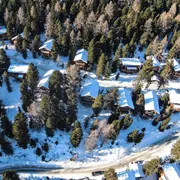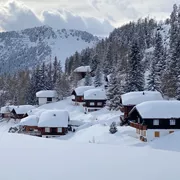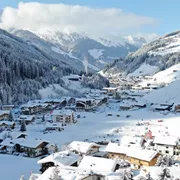

When an Italian ski resort found microplastics in a nearby glacier, it decided to take action. The Pejo 3000 in Trentino has become the first European ski resort to ban single-use plastics. What does this mean? Keep reading to find out.
Why is the Pejo 3000 banning plastic?
The decision was taken after a study in April found that the Forni Glacier contained around 150 million microplastic particles such as plastic fibres and polyethylene at the surface. Scientists at the University of Milan and University of Milan-Bicocca surmised that the particles had likely come from the clothing and equipment worn by tourists on the glacier. The Pejo 3000 is doing its best to limit the amount of plastic that gets into the snow, to limit environmental consequences and prevent it entering the food chain.

No more plastic bags or straws
The Pejo 3000 opened for ski season this year in early December with a new goal: to protect the snow by prohibiting the use of plastic bottles, cutlery, straws, bags, condiments sachets and other single-use plastics. So far the resort's three mountain restaurants are operating without the use of these evils. The resort has also taken steps to remove the plastic covering on its one-day ski passes, which shed microplastics. The region already uses renewable energy and the resort will be adopting even more sustainability measures in the future as consumers increasingly demand proof of an eco-friendly approach to skiing.
More info: Pejo 3000
Pejo is part of the Val di Sole ski area in Trentino, Italy. A former health resort, the village still boasts a thermal health complex and around 20 kilometres of slopes for downhill skiing between 1400-3000m altitude. While you won't find the world's craziest après-ski scene here, there are several mountain restaurants and the destination is attractive for those looking to take holidays off the beaten path in a relaxing and tranquil setting against the stunning backdrop of the Stelvio National Park.
















